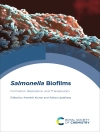One of the few books to focus on the critical problem of the correct characterization of conflicting data for an adequate risk evaluation, this title comprehensively covers the different approaches in various research areas in the US and in Europe, while also considering the ethical implications of risk evaluation. In addition, special attention is paid to the sensitive topic of potential health risks through electromagnetic fields.
Written by leading experts in the field, this is an indispensable resource for policy makers and professionals in health risk assessment.
Daftar Isi
Introduction
FROM SCIENTIFIC ANALYSIS TO RISK POLICY
Risk Assessment and Risk Communication for Electromagnetic Fields: A World Health Organization Perspective (T. Emilie van Deventer and Kenneth R. Foster)
Characterizing Evidence and Policy Making (Evi Vogel and Ginevra Delfini)
MAKING SENSE OF CONFLICTING DATA: EVIDENCE CHARACTERIZATION IN DIFFERENT RESEARCH AREAS
Basic Principles and Evidence Characterization of the Data from Genetox Investigations (Günter Obe and Vijayalaxmi)
Animal Studies (Alexander Lerchl)
Epidemiology (Joachim Schüz)
Principles and Practice of Evidence Characterization in Environmental Clinical Case Studies (Caroline Herr and Thomas Eikmann)
MAKING SENSE OF CONFLICTING DATA: PROCEDURES FOR CHARACTERIZING EVIDENCE
Characterizing Evidence with Evidence-based Medicine (Alexander Katalinic and Dagmar Lühmann)
The IARC Monographs. Approach to Characterizing Evidence (Vincent James Cogliano, Robert Alexander Baan, Kurt Straif, Yann Grosse, Marie Béatrice Secretan, and Fatiha El Ghissassi)
The Swiss Health Risk Approach (Martin Röösli)
Procedures for Characterizing Evidence: German Commission on Radiation Protection (Norbert Leitgeb)
Lessons from the California Electromagnetic Field Risk Assessment of 2002 (Raymond Richard Neutra)
Evidence Maps – A Tool for Summarizing and Communicating Evidence in Risk Assessment (Holger Schütz, Peter M. Wiedemann, and Albena Spangenberg)
PSYCHOLOGICAL AND ETHICAL ASPECTS IN DEALING WITH CONFLICTING DATA AND UNCERTAINTY
Perception of Uncertainty and Communication about unclear Risks (Peter Wiedemann, Holger Schütz, and Andrea Thalmann)
Ethical Guidance for Dealing with Unclear Risk (Armin Grunwald)
PRACTICAL IMPLICATIONS
Lessons Learned: Recommendations for Communicating Conflicting Evidence for Risk Characterization (Peter Wiedemann, Franziska Börner, and Holger Schütz)
Tentang Penulis
Dr. Wiedemann is the Director of the Programme Group MUT at the Research Centre Jülich. He has extensive work-experience in the field of societal conflicts over modern technologies with a focus on risk communication and evidence characterization. A field of special interest is the potential risk of electromagnetic fields. Dr. Wiedemann was elected President (in 2002 and 2003) of the Society for Risk Analysis – Europe (SRA-E). He was called to serve in different sub-committees of the German Radiation Protection Commission and served as a member of the EMF Communication Group at the WHO EMF Project (1998-2000).
Holger Schütz is a senior scientist at the Programme Group MUT. His research focus is on risk perception and risk communication, comparative assessment of environmental health risks, and evidence assessment. He is the first author of the book ‘Comparative Risk Assessment’ published by Wiley-VCH in 2006.












